You might be wondering if the foods you eat are working against your gut health efforts. Let's look at how glyphosate, a common weed killer, could be affecting your gut and possibly undoing the benefits of your probiotic supplements. This chemical, found in many everyday foods, may be quietly impacting your digestive system and overall health in surprising ways.
Key Takeaways:
- Glyphosate, found in many foods, can disrupt your gut bacteria balance
- Everyday foods might contain traces of glyphosate, affecting how well probiotics work
- A healthy gut is super important for your overall health and immune system
- Choosing organic foods and high-quality probiotics can help fight glyphosate's effects
- BioPhysics Essentials offers products to support gut health despite environmental challenges
1. What is Glyphosate and Why Should You Care?
Glyphosate is a weed killer that farmers use a lot. It's the main ingredient in many herbicides, widely used in agriculture and landscaping. While it's great for killing weeds and increasing crop yields, it might not be so great for the tiny helpers living in your gut. These helpful bacteria, collectively known as your gut microbiome, play a big role in keeping you healthy, influencing everything from digestion to immune function and even mental health.
Scientists have found that glyphosate can mess with the good bacteria in your gut. This is important because these bacteria help you digest food, fight off bad germs, and even affect your mood. The chemical works by inhibiting an enzyme pathway that's crucial for many beneficial bacteria, but not for potentially harmful ones. Some research even suggests that disrupting your gut bacteria might lead to autoimmune problems, highlighting the far-reaching consequences of gut microbiome imbalance.
2. The Importance of a Happy Gut
Your gut is like a bustling city of bacteria, and keeping it balanced is super important for your overall health. A healthy gut helps you digest food better, keeps your immune system strong, and can even affect your mood and cognitive function. Scientists have found that there's a strong connection between your gut and your brain, which is pretty cool! This gut-brain axis is a two-way communication system that shows how important gut health is for mental well-being and vice versa.
When your gut is happy, you might notice:
- Better digestion (less bloating and tummy troubles)
- Stronger immune system (you might get sick less often)
- More energy and improved nutrient absorption
- Clearer skin and better overall appearance
- Better mood and mental clarity
- Reduced inflammation throughout the body
- Improved sleep quality
3. Everyday Foods That Might Contain Glyphosate
You might be surprised to learn that glyphosate can be found in many common foods, even those considered healthy. The widespread use of this herbicide in agriculture means it can end up in our food supply through various routes. Here are some examples of foods that might contain traces of glyphosate:
- Cereals and oatmeal, especially those made with conventionally grown grains
- Bread and crackers, particularly those containing wheat or oats
- Soy products, including tofu, tempeh, and soy milk
- Some fruits and vegetables (especially non-organic ones), with higher risks in crops like strawberries, spinach, and apples
- Beans and lentils, which may be sprayed with glyphosate before harvesting
- Corn and corn-based products, as corn is often genetically modified to be glyphosate-resistant
- Some types of nuts and seeds, depending on farming practices
It's important to note that the amounts of glyphosate in these foods are usually very small and often below regulatory limits. However, over time, eating these foods regularly might affect your gut health due to cumulative exposure. The long-term effects of low-dose glyphosate exposure are still being studied, but many health experts recommend minimizing exposure where possible.
4. How Glyphosate Messes with Your Gut Bacteria
Glyphosate can be tricky for your gut bacteria. It works by stopping a special process that bacteria use to make important nutrients, specifically by inhibiting the shikimate pathway. This pathway is crucial for bacteria to produce essential amino acids and other compounds they need to survive and thrive. While this process doesn't exist in human cells, it's vital for many beneficial gut bacteria. This can cause problems for the good bacteria in your gut, but not so much for the bad ones, potentially leading to an imbalance in your gut microbiome. Some helpful bacteria, like Bifidobacterium lactis, might have a harder time growing when exposed to glyphosate, which could reduce their beneficial effects on your health.
Glyphosate-induced dysbiosis may contribute to conditions like SIBO, making clean probiotic supplementation even more critical.
When the balance of bacteria in your gut gets thrown off, it can lead to various health issues:
- Digestive problems like bloating, constipation, or diarrhea
- Weakened immune system, making you more susceptible to infections
- Inflammation in your body, which is linked to numerous chronic diseases
- Mood changes and potential impacts on mental health
- Nutrient deficiencies due to impaired absorption
- Increased intestinal permeability, often referred to as "leaky gut"
- Potential long-term effects on metabolism and hormone regulation
5. Signs Your Gut Health Might Be Off
Your body has ways of telling you when your gut isn't happy. Recognizing these signs early can help you take action to restore your gut health. Here are some signs to watch out for:
- Frequent stomach aches or bloating, especially after meals
- Changes in your bathroom habits (constipation or diarrhea)
- Feeling tired all the time, even after getting enough sleep
- Skin problems like acne, eczema, or unexplained rashes
- Mood swings, feeling anxious, or experiencing depression
- Getting sick often, indicating a weakened immune system
- Unexplained weight changes, either gain or loss
- Food intolerances that seem to develop suddenly
- Strong cravings for sugar or processed foods
- Bad breath that persists despite good oral hygiene
If you notice these signs, it might be time to take a closer look at your diet and gut health. Consider keeping a food diary to track what you eat and how you feel afterward. This can help you identify patterns and potential trigger foods that might be affecting your gut health.
6. How to Reduce Glyphosate in Your Diet
While it's hard to avoid glyphosate completely in today's world, there are several steps you can take to reduce your exposure and protect your gut health:
- Choose organic foods when possible, especially for items known to have higher glyphosate residues
- Wash fruits and vegetables thoroughly, using a vinegar solution or specialized produce wash
- Grow your own herbs or vegetables in a home garden or community plot
- Look for "glyphosate-free" labels on products, which are becoming more common
- Eat more fermented foods like yogurt, kimchi, sauerkraut, or kefir to support gut health
- Consider using a water filter that can remove glyphosate, especially if you live in an agricultural area
- Support local farmers who use organic or regenerative farming practices
- Read labels carefully and avoid processed foods that may contain high-risk ingredients
Making these changes can not only help reduce glyphosate exposure but also improve your overall gut health. This is especially important if you're an athlete or someone who cares about their physical performance, as gut health can significantly impact energy levels, recovery, and overall athletic ability.
7. Probiotics: Your Gut's Best Friend
Probiotics are like reinforcements for the good bacteria in your gut. They can help balance out the effects of things like glyphosate by replenishing beneficial bacteria and supporting overall gut health. BioPhysics Essentials offers a great product called MicroBiome Restore™ Prebiotic & Probiotic Formula that's designed to support your gut health in multiple ways.
What makes MicroBiome Restore™ special:
- It has 26 different types of good bacteria, providing a diverse range of beneficial microorganisms
- Contains organic and non-GMO 'Super Prebiotics' to feed the good bacteria and support their growth, ensuring a glyphosate & toxic pesticide-free probiotic
- The capsule is fermented, so it starts working quickly in your digestive system
- Includes soil-based organisms that are super effective and mimic the beneficial bacteria found in nature
- Formulated to survive stomach acid and reach the intestines where they're most needed
- Free from common allergens and artificial additives
8. Minerals: The Secret Weapon for Gut Health
Did you know that minerals can help your probiotics work even better? Minerals play a crucial role in supporting the growth and function of beneficial gut bacteria. BioPhysics Essentials offers X-Cellerator™ Full Spectrum Trace Mineral Drops to give your gut health an extra boost and enhance the effectiveness of probiotics.
Why X-Cellerator™ is awesome:
- Your body can easily use these minerals due to their ionic form
- They come from the Great Salt Lake, which is a natural source rich in diverse minerals
- Helps good bacteria grow and thrive in your gut
- Makes it easier for your body to digest food and absorb nutrients
- Supports overall cellular function and enzyme activity
- Can help balance electrolytes and hydration
- May improve energy levels and reduce fatigue
9. The Ultimate Gut Health Package
If you're serious about taking care of your gut, BioPhysics Essentials offers the Gut Essentials Protocol. This is a complete package designed to help with issues like IBS, SIBO, and general gut discomfort. It's a comprehensive approach to gut health that addresses multiple aspects of digestive wellness.
What's great about the Gut Essentials Protocol:
- Includes magnesium that's easy for your body to use, supporting muscle and nerve function
- Has 26 different types of probiotics to restore and maintain a diverse gut microbiome
- Helps heal your gut and balance the bacteria in it, addressing root causes of digestive issues
- Provides a multi-faceted approach to gut health, targeting different aspects of digestive wellness
- Formulated to work synergistically, enhancing the overall effectiveness of each component
Price: $89.00
10. Lifestyle Changes for a Happy Gut
Taking supplements is great, but there are other lifestyle changes you can make to keep your gut healthy and mitigate the effects of environmental toxins like glyphosate:
- Eat lots of different fruits and vegetables to increase fiber intake and support gut diversity
- Try to relax and manage stress (maybe try yoga or meditation) as stress can negatively impact gut health
- Get enough sleep (aim for 7-8 hours a night) to allow your gut to repair and regenerate
- Exercise regularly to promote healthy gut motility and reduce inflammation
- Drink plenty of water to support digestion and help flush toxins from your system
- Limit processed foods and artificial sweeteners that can disrupt gut bacteria
- Practice mindful eating, chewing your food thoroughly to aid digestion
- Consider intermittent fasting, which may promote gut health and cellular repair
Remember, small changes can make a big difference over time! Consistency is key when it comes to improving and maintaining gut health.
11. The Future of Gut Health Research
Scientists are always learning new things about gut health, and the field is rapidly evolving. They're looking into how things like glyphosate affect our bodies in the long run, as well as exploring new ways to support and restore gut health. Some researchers are even studying how other common food additives might impact our gut bacteria, highlighting the complexity of maintaining gut health in the modern world.
As we learn more, we'll have better ways to keep our guts healthy and happy. Some exciting areas of research include:
- Personalized probiotics tailored to individual microbiomes
- The role of the gut microbiome in mental health and neurodegenerative diseases
- Novel prebiotics that selectively feed beneficial bacteria
- The impact of environmental toxins on gut health and ways to mitigate their effects
- Gut microbiome transplants for treating various health conditions
Stay tuned for new discoveries in this exciting field that could revolutionize how we approach health and wellness!
Conclusion: Taking Care of Your Gut in a Glyphosate World
While it might seem scary that glyphosate is in so many foods, remember that you have the power to make choices that support your gut health. By being mindful of what you eat, choosing organic when possible, and supporting your gut with probiotics and minerals, you can help your gut stay healthy even when faced with environmental challenges.
Remember, a happy gut often means a happier, healthier you. The connection between gut health and overall well-being is becoming increasingly clear, influencing everything from your immune system to your mental health. By taking steps to protect and nourish your gut microbiome, you're investing in your long-term health and quality of life.
So why not start your gut health journey today? Your body will thank you! Whether it's incorporating more fermented foods into your diet, trying out a new probiotic supplement, or simply being more mindful of the foods you choose, every step counts. Here's to a healthier gut and a happier you!
Key Steps to Protect Your Gut from Glyphosate
- Choose organic foods when possible
- Thoroughly wash fruits and vegetables
- Supplement with high-quality probiotics
- Support gut health with essential minerals
- Stay informed about environmental toxins
By following these steps and staying informed, you can take control of your gut health and work towards a happier, healthier you. Remember, small changes can make a big difference over time. Here's to your gut health journey!







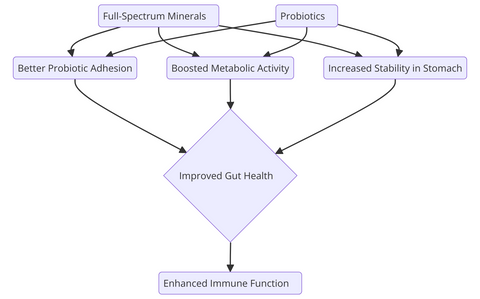
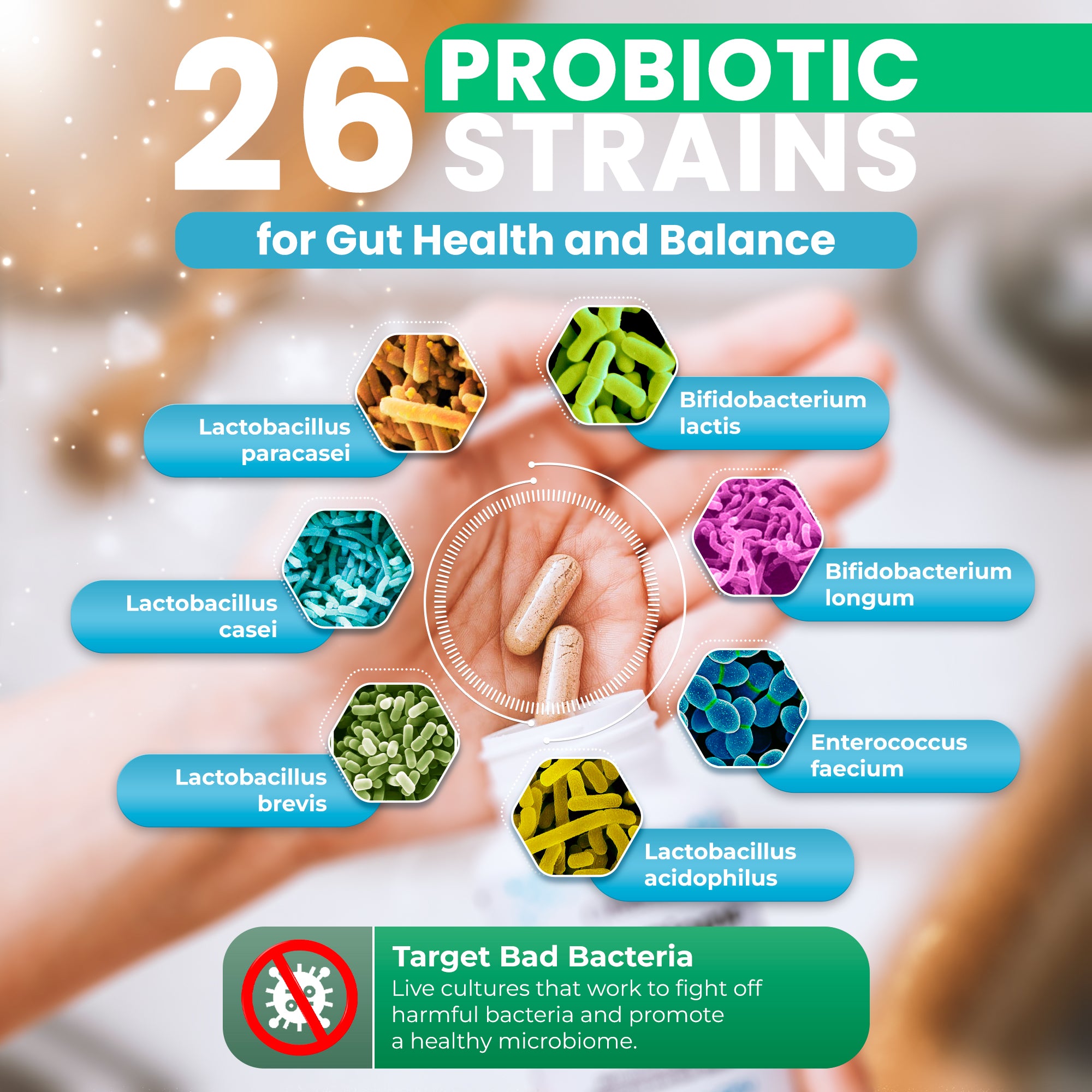
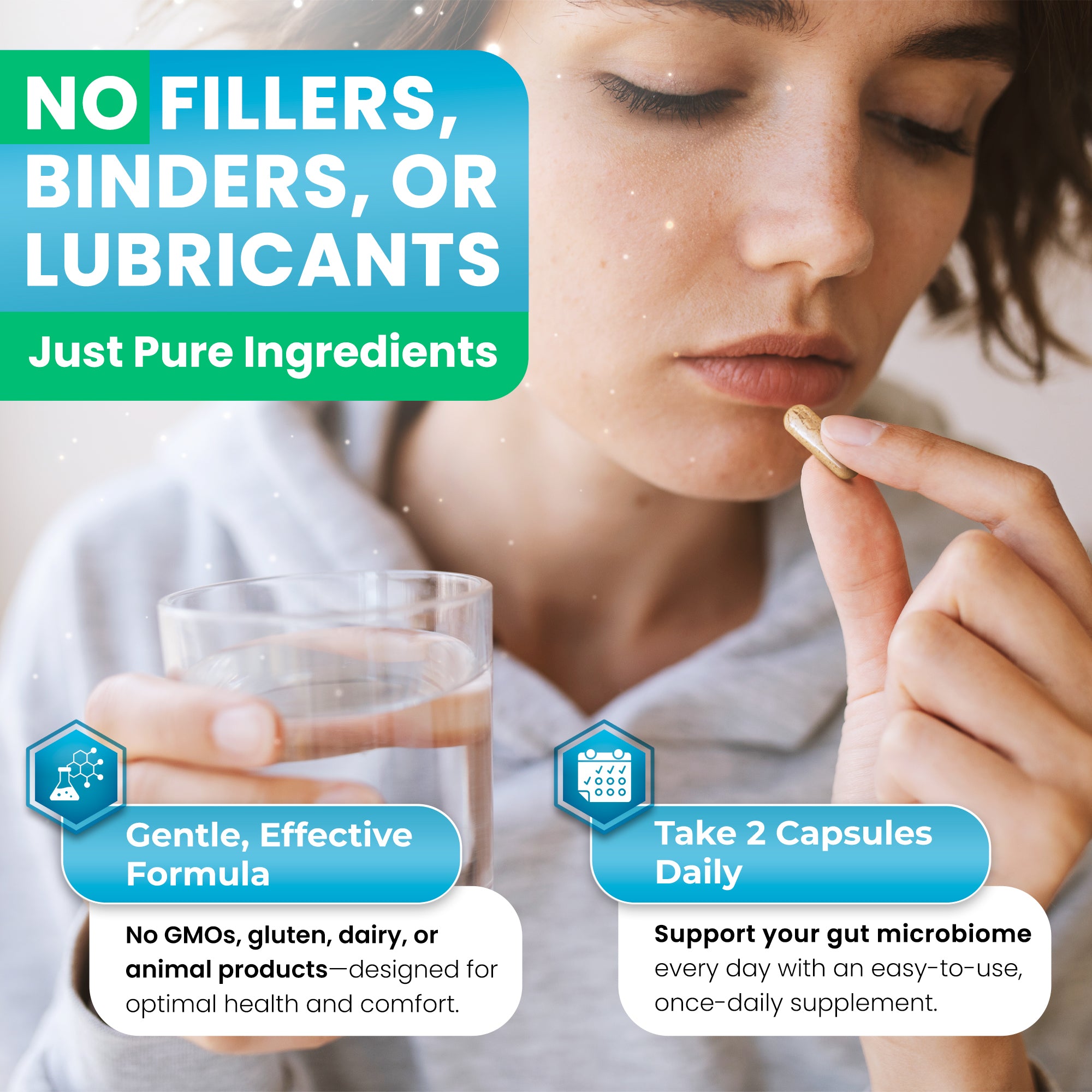


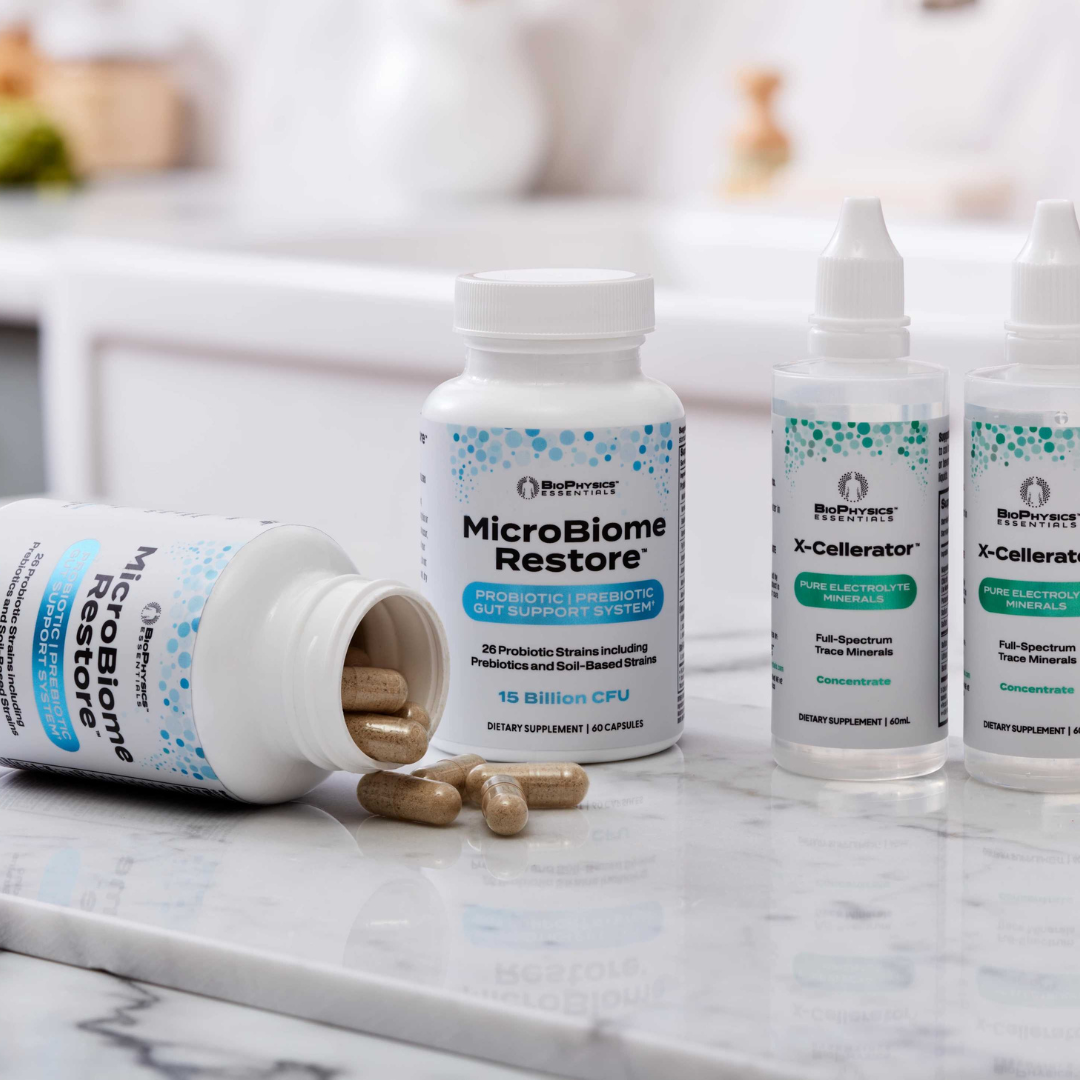
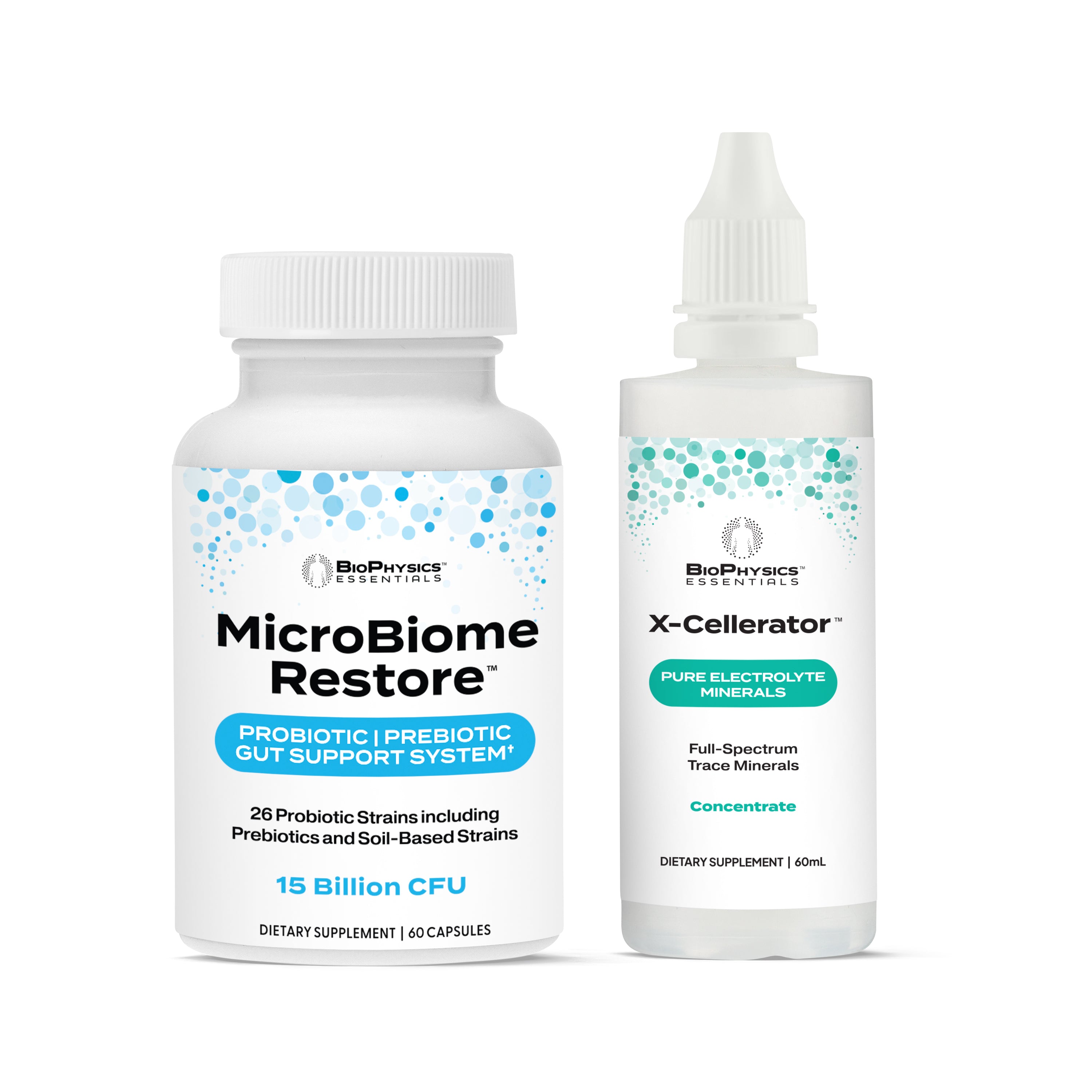



Share and get 15% off!
Simply share this product on one of the following social networks and you will unlock 15% off!